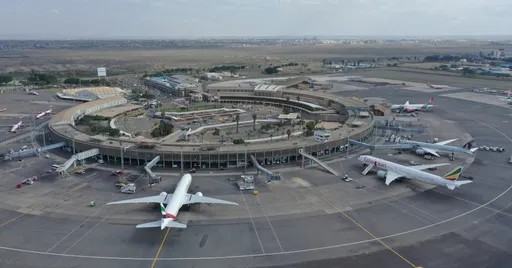Voting is taking place in Chad's general elections on Sunday, with people electing representatives to federal, provincial, and local governments, amid a boycott by the main opposition Les Transformateurs.
The vote is taking place amid significant geopolitical tensions, including the gradual withdrawal of French forces following the termination of a military cooperation agreement, recurring Boko Haram terror group attacks in Lake Chad, and allegations of interference in the neighboring Sudanese armed conflict.
According to the National Agency for the Management of Elections (ANGE), more than 8 million voters are registered, out of a total population of approximately 18.28 million.
Polling stations are open from 6 a.m. to 6 p.m. local time, with vote counting to follow. Results from the legislative, provincial, and municipal elections are expected in mid-January.
Opposition boycott
Chad, a predominantly desert Sahelian country, has been led by Marshal Mahamat Idriss Deby Itno, 40, since 2021, when his father, Idriss Deby Itno, died. He won a five-year term in an election in May 2024, which the opposition labeled fraudulent.
Following the constitutional referendum in December 2023 and the presidential election the same year in May, these polls mark the end of a transition that has lasted more than three years.
Issa Doubragne, spokesperson for the ruling Patriotic Movement for Salvation (MPS), said in a statement posted on the party's official website: "We are fighting tooth and nail to get the majority. We elected Marshal Mahamat Idriss Deby Itno with 61% of the vote, and we must provide him with the resources he requires to carry out his plan."
The main opposition party, Les Transformateurs, led by Succes Masra, an economist and politician who was prime minister from January 1 to May 22, 2024, is boycotting the elections, claiming the results have already been decided.
Bicameral structure
"The results are already in the computers, and everything has been decided beforehand. We refuse to serve as extras and urge Chadians not to vote," Masra stated in a Facebook post.
The new parliamentary system will be made up of a National Assembly with 188 deputies elected for five-year terms and a Senate with 69 members, one-third of whom are appointed by the President.
The National Transitional Council implemented this bicameral structure on July 29, 2024, in response to the Inclusive National Dialogue's recommendations.
The diaspora, as well as more than 45,000 soldiers and 200,000 nomads from across the country, have been allowed to vote in these elections.

















.JPG?width=512&format=webp&quality=80)





